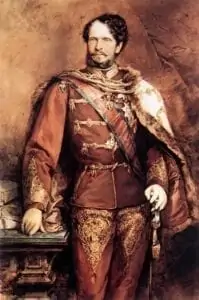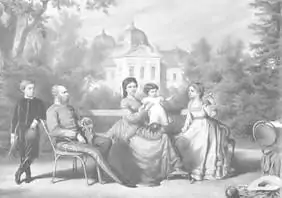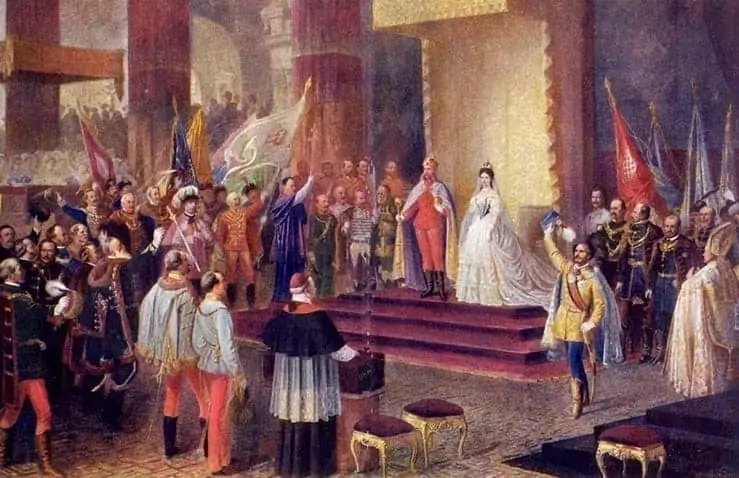What was the effect of Elizabeth’s sole intervention in the politics of the empire? What were the consequences of the settlement on a private level?
Empress Elisabeth hated being the center of attention and avoided public appearances as much and as often as she could. Only once did she interfere in the politics of the empire – it was about Hungary.
Sisi felt a great affinity with the warm and spirited Hungarian soul and worked persistently and successfully for a consensus. She admired the Hungarians’ struggle for freedom and preferred to stay in Budapest rather than Vienna.
The 1867 Compromise with Hungary was of great concern to her and ultimately to her great credit. Elisabeth and Franz Joseph were crowned King and Queen of Hungary in the Matthias Church in Budapest on June 8, 1867. After this, she retired from politics.
Her preference for Hungary was also expressed in her Hungarian ladies-in-waiting and closest confidants, such as Ida Ferenczy, Countess Marie Festetic and later Irma Sztáray.
Sisi and Count Andrássy – her Hungarian lover?

Count Gyula Andrássy (1823-1890)
Sisi adored the Hungarians and their fiery temperament. She had a very close relationship with Gyula Andrássy, who later became Prime Minister of Hungary.
He had been sent into exile in 1848 because of his involvement in the Hungarian Revolution. After his amnesty, he met the Empress at an audience in 1866. He became her closest friend and personal advisor in Hungary.
They were accused of having a secret affair, but this could never be proven. The rumor mill even went so far as to suggest that Marie Valerie was his daughter. If it was ever more than a friendship, it was handled extremely discreetly. Elisabeth remained closely associated with Count Andrássy into old age.
She even claimed with pride: “Yes, it was a faithful friendship, and it was not poisoned by love”, meaning physical love.” (quoted from Brigitte Hamann, Elisabeth – Kaiserin wider Willen p. 372)
Marie Valerie – the “only one” is born in Budapest

Sisi and Franz Joseph with the children in front of Gödöllö Castle, 1869
The birth of Marie Valerie, Elisabeth’s youngest daughter, was closely linked to Elisabeth’s passion for Hungary . Ten years after her first three children, she gave Franz Joseph another daughter, who was born in Budapest in April 1868. It was assumed that she fulfilled her marital duties once again for Franz Joseph’s sake as thanks for the settlement with Hungary.
Marie Valerie was therefore called the “Hungarian child”. What Sisi missed out on with her first three children due to her own youth and the many absences from the Viennese court, she now wanted to make up for.
Sisi herself took care of Marie Valerie’s upbringing at Gödöllö Castle and only spoke Hungarian to her. At the country estate not far from Budapest, her laws ruled, which had little to do with matters of rank and protocol. Sisi adored her youngest child and called her the “only one”. Now, at the age of 30, she was finally able to live out her role as a mother and be absorbed in it.
Tip from Sisi’s Amazing Journey: If you ever travel to Budapest, a visit to Gödöllo Castle, not far from Budapest, is highly recommended.

